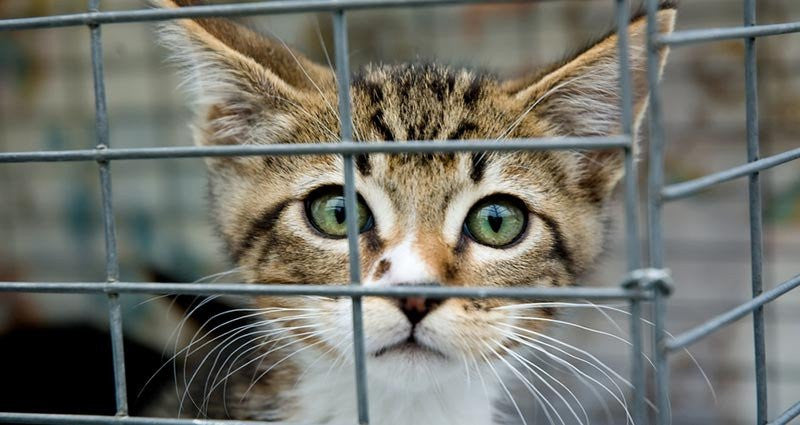
ANIMAL ADOPTION: MYTHS AND REALITIES
There are many myths circulating about adopting animals from shelters or animal shelters, and these myths may even put off some potential adopters.
Misconceptions and misinformation have given rise to a plethora of myths that, like urban legends, sometimes have a grain of truth at their core. But some people are very good at romanticizing small truths, even dramatizing them... to the point that they sometimes turn into horror movies!
-
PLUS: 👉 Read this guide to get the best advice from 200 animal rescue organizations on adopting your pet. 🐶🐱
Of course, you have to take a step back and use common sense when adopting an animal, but... what if we put aside unfounded fears and worries? This would allow us not only to keep an open mind, but also our arms, to welcome a creature who needs it!
That's why we're bringing you a compilation of the 10 most common myths about pet adoption. But most importantly, we're telling you the truth behind each one!
-
LEARN MORE ABOUT: 👉 How to help animal welfare organizations in your area? 🐶🐱
MYTH #1: Animals from shelters are in bad shape
This myth is certainly the most widespread! Many people believe that animals end up in shelters because of their poor physical or psychological health. This is completely false!
Jennifer Galloway, director of the Gulf Coast Humane Society, explains:
"People need to understand that most of the animals that end up in our homes are there for often very practical reasons: a death, a divorce, a birth, a change in their owner's life or simply because the adaptation to their family has not worked."
-
SUGGESTED ARTICLE: 👉 The long-awaited arrival home
TRUTH #1: Animals don't end up in shelters because of themselves!
Families may decide to part with their pet for a variety of reasons that have nothing to do with the pet's behavior or health.
Let's take some examples:
- A precarious financial situation such as the loss of a job which means that one is unable to continue to provide for the needs of one's animal;
- Moving to a smaller place or to accommodation where pets are not allowed;
- A trip abroad or deployment on a mission abroad in the case of military personnel;
- The arrival of a new child or the appearance of allergies in the latter;
- Deterioration of the health or aging of the animal's owner;
- A death;
- A divorce in which neither ex-spouse can keep the animal.
So no, not all animals placed for adoption have health or behavioral problems!
GM Hart explains, "It's a lie that all shelter animals are problem animals. Not all of them have had horror stories, neglect, or abandonment. Often, they just ended up with the wrong family."
Sometimes, it's true, some animals have problems that make shelter placement the only solution for their owner. Here are some examples:
- The animal exhibits unexpected growth (a miniature pig that ultimately becomes too big, for example).
- Animals that are too energetic for their owner's lifestyle. This unfortunately happens all too often when people don't do enough research before choosing their pet. Kittens or puppies are all quite calm and cute... It's as they grow that some reveal their true personalities and can turn out to be real balls of energy! Some animal breeds have specific characteristics that should be taken into account before committing!
- Animals that turn out to be too noisy or too quiet, in short, that no longer fit with their owner's lifestyle. Each breed has its characteristics, but each animal also evolves during its life and, even if it is unfair, some people prefer to part with it for these reasons. It is obvious that the 20-year-old parrot will no longer be as easy and fun to be with... Of course, if an animal begins to develop behavioral problems or become aggressive, that is different.
- The pet isn't as cute as it was when it was little. This is probably the most unfair of all reasons to get rid of a pet, but unfortunately, it happens. Some people get rid of their pet once it grows up. Others replace it with a younger one... It's hard to imagine if, as humans, we got rid of our children once they reach their teenage years and lose their rosy cheeks! It's worth thinking about.
MYTH #2: Animals put up for adoption are often old or sick
This is perhaps one of the most common myths circulating about adoption! But it's just a myth!
TRUTH #2: Animals up for adoption come in all ages, breeds, and health conditions!
Shelters of all kinds welcome a wide variety of animals, from the youngest to the oldest. They also don't select based on breed, size, or health, and give everyone a fair chance. Whether you're looking to adopt a puppy, a kitten, or a female guinea pig of reproductive age, you'll likely find them by searching different shelters.
MYTH #3: We have very little information about the animal we adopt
For some reason, the vast majority of adopters believe that shelters hold very little information about the animals in their care. Yet, now, most animals are microchipped, which allows not only their identification but also access to their medical records.
TRUTH #3: Shelters know the animals in their care well
Remember that the goal of quality shelters is to find the right family for the right animal. This is one of the reasons why adoption can sometimes take time: shelter managers want to get to know the animal and its needs and characteristics well before placing it in a family where it will truly belong. So take the time to talk with the shelter employees and volunteers so they can recommend the animal that will fit your lifestyle and needs.
MYTH #4: There are only cats and dogs for adoption
That's not true. These days, animals of all kinds are up for adoption. Just take a look at classifieds sites and you'll see that exotic animals for adoption are very varied and far from hamsters, cats, dogs, gerbils, and other guinea pigs!
TRUTH #4: All kinds of animals are available for adoption
If you have a specific animal in mind, start by calling local shelters and you'll be surprised by the array of creatures waiting for a family. Some shelters house turtles, birds, snakes, farm animals, and even spiders! Who knows, you might find your future best friend?
MYTH #5: Animals are often dirty, even sick
Very healthy, well-cared-for animals are brought into shelters every day for various reasons: moving, life changes, or sometimes simply because the animal has become too fat.
TRUTH #5: Animals put up for adoption are meticulously checked
It's a fact. Good shelters won't put animals with serious health problems up for adoption. Increasingly, the trend is to treat and even rehabilitate animals withbehavioral problems before putting them up for adoption and releasing them to a new family. Veterinarians work closely with shelters and humane societies, and the staff and volunteers are familiar with the animal's health. In any case, before leaving with your new companion, you can spend time with them and also ask to see their medical records.
MYTH #6: Purebreds are rare for adoption
Many purebred animals end up in shelters for various reasons, the most common being financial. In other cases, the owner gives them up for personal reasons that simply mean they can no longer care for the animal.
TRUTH #6: Up to 25% of adoptable animals are purebreds
In some shelters, you can even ask to be notified when a certain breed of animal becomes available. If you really want a purebred animal, however, we recommend private shelters, which often specialize in one type of animal or breed, unlike animal shelters, for example, which accept all animals without distinction.
MYTH #7: Adopting a pet is way too expensive
Getting a pet is never cheap, in any case. Whether you decide to adopt or buy an animal from a breeder, one thing is certain: you become responsible for a living being who will require care and a certain level of comfort. Therefore, you will have to spend a little more, especially at the beginning, to settle your pet. But know that by adopting, you will save considerably on the price of the animal itself.
TRUTH #7: Adopting is more economical
Neutering or spaying, vaccinations, comprehensive medical examinations, and any necessary treatments all come with significant costs. When you adopt from a shelter or animal shelter, you only pay for the animal itself, including vaccinations, medical care, sterilization, and so on.
So you are a winner.
MYTH #8: The mental or behavioral health of an abandoned animal is compromised for life.
It's true: experiencing abandonment and being placed in a shelter can be devastating for any living being. However, this doesn't mean that they will be permanently damaged (except in some extreme cases of abuse). The web is full of stories of animals who have sometimes had painful experiences but, adopted by loving families, have recovered from their emotional or physical injuries and become the best companions possible.
TRUTH #8: You can't judge an animal by seeing it only once.
Animals have a remarkable ability to adapt and heal. A scared little ball of fur can become a true ray of sunshine if given the chance. Sharon, from Scooby North America, confirms: "Don't avoid shelters just because you're afraid the animals have had difficult experiences. They are so strong and can overcome their problems with good care, patience, and training... They will become part of the family in their own right."
MYTH #9: Only young animals make good long-term companions
Many people believe that in order to properly train an animal, it must be brought into the family as young as possible. They believe that the animal will then meet their expectations and become what they imagine it to be. However, these same animals are sometimes placed for adoption later when they grow up because they do not correspond to the image expected of them...
TRUTH #9: All animals make good companions
Just like young pets, older pets can have their own charm. You won't get to enjoy the few months when the pet is at its cutest, it's true, but you'll have the chance to build a relationship with an adult pet that already has a great personality, appropriate behavior in most cases, and will have passed its destruction and housebreaking stages, to name just a few. So, it will be a great companion!
MYTH #10: Shelters are depressing places
This may have been true a decade or more ago, but these days shelters and rescues have changed a lot and are far from being dark places, quite the opposite.
So, instead of focusing on the fact that the animal might not be happy, why not think about how happy it could be in your home? Matthew Brown, director of the Assisi Angel Adoption Center, agrees: "Don't focus on the image of the animal curled up in its cage, but rather on the image of that same animal curled up against you on the sofa and never in a cage again!"
TRUTH #10: Shelters act to protect animals
Of course, there are exceptions. But the goal of good shelters is to offer their residents a better life. So don't focus on the animal's past, but on what you can offer them and make sure you can make them truly happy by taking them in.
_________
Now, once the animal is in your home, you have to be realistic and help it through its transition phase, which won't happen overnight. You'll need to socialize it as much as possible and perhaps administer homeopathic treatments to help it manage anxiety or temporary depression , to name just a few examples. We know this works because we've helped countless animals adjust to their new life in their adoptive family, and with success!
We wrote this article in hopes of helping people gain clarity on what the reality of animals being put up for adoption means. Linda Rocher of A Forever Home Animal Rescue shares these statistics with us: 9 out of 10 dogs may become homeless at some point in their lives, and 99% of the 6 million cats and dogs euthanized each year in the United States are healthy and adoptable. How can we allow millions of animals who are just waiting to be loved to be euthanized when we could adopt them?
We hope we have helped you debunk some of these myths that you may have already heard or even propagated and that you are now ready to give an animal a second or even a third chance at life.
For more tips on your pet's health and updates on thePerfect Adoption Guide , sign up for our Homeo Animo newsletter and follow our Facebook page. You can also contact HomeoAnimo ™ directly through our website. We're here to help!


















Leave a comment
This site is protected by hCaptcha and the hCaptcha Privacy Policy and Terms of Service apply.